Balancing Cortisol Naturally: How Acupuncture Helps Reduce Stress Hormones
Endocrine System Diagram by OpenStax from Wikimedia.org
I’m reading a lot about cortisol being a center for hormone imbalances and what I’m realizing is many of my patients are seeking acupuncture as a way to turn off that cortisol response and in-turn, balance their hormones. In our fast-paced world, chronic stress has become a modern epidemic—fueling everything from insomnia and anxiety to weight gain and heart disease. At the center of this stress response is cortisol, a hormone produced by the adrenal glands. While essential in short bursts, persistently elevated cortisol can wreak havoc on the body. Fortunately, acupuncture offers a time-tested and scientifically supported approach to rebalancing this crucial hormone.
WHAT IS CORTISOL?
Cortisol is often called the "stress hormone" because it's released in response to stress and low blood glucose levels. It plays a vital role in metabolism, immune function, blood pressure regulation, and inflammation control.
However, chronically high cortisol—often due to prolonged emotional stress, poor sleep, or underlying health conditions—can lead to:
Fatigue
Anxiety and depression
Weight gain, especially around the abdomen
Hormonal imbalances
Weakened immunity
High blood pressure
HOW ACUPUNCTURE INFLUENCES CORTISOL LEVELS
Acupuncture, a core practice in Traditional Chinese Medicine (TCM), involves inserting fine needles into specific points along the body’s meridians to restore energetic balance. In the context of cortisol regulation, acupuncture works through several biological mechanisms.
1. Modulating the Hypothalamic-Pituitary-Adrenal (HPA) Axis
The HPA axis controls your stress response and cortisol release. Acupuncture has been shown to regulate this system, effectively reducing the overproduction of cortisol in response to stress. This is also essential for fertility and the adrenal reflexes are the first things I check when a patient is struggling with fertility.
A 2013 study published in PLOS ONE found that acupuncture significantly lowered cortisol levels in stressed rats, suggesting a neuroendocrine regulatory effect. More importantly, the authors noted improved behavioral responses, further supporting the hormone-stabilizing role of acupuncture.
2. Calming the Sympathetic Nervous System
Acupuncture stimulates the parasympathetic nervous system (rest-and-digest) while downregulating the sympathetic nervous system (fight-or-flight). This helps reduce the physiological response to stress and normalize cortisol secretion.
A 2012 study in Endocrinology demonstrated that electroacupuncture helped suppress sympathetic nervous activity and buffered the rise in cortisol following stress exposure.
3. Improving Sleep and Reducing Anxiety
Insomnia and anxiety are both common symptoms of high cortisol levels—and both are areas where acupuncture shines. By promoting deeper, more restful sleep and calming mental agitation, acupuncture indirectly supports natural cortisol rhythm restoration (higher in the morning, lower in the evening).
WHAT TO EXPECT DURING ACUPUNCTURE TREATMENT
During a treatment session for high cortisol, a licensed acupuncturist may focus on points that support:
Liver function (for detoxification and hormone regulation)
Kidneys/adrenals (for endocrine health)
Heart and pericardium (for emotional balance and sleep)
Spleen and stomach (for digestive and metabolic support)
Depending on your presentation, they may also use electroacupuncture (gentle electrical stimulation on needles), herbal medicine, or cupping to enhance results.
HOW MANY SESSIONS ARE NEEDED?
While individual results vary, many people notice a difference in stress levels and energy after just a few sessions. For long-standing cortisol imbalance, a treatment plan might include:
1–2 sessions per week for the first month
Follow-up sessions every 2–4 weeks for maintenance
COMPLEMENTARY LIFESTYLE SUPPORT
Acupuncture is most effective when paired with stress-reducing lifestyle changes such as:
Mindful movement (e.g., yoga, tai chi)
Adaptogenic herbs (e.g., ashwagandha, rhodiola)
Anti-inflammatory diet
Quality sleep hygiene
Chronic high cortisol can stealthily undermine your health and well-being. Acupuncture provides a natural, non-invasive way to lower stress hormones, balance the nervous system, and restore overall resilience. Backed by both ancient wisdom and modern research, it’s a powerful tool in reclaiming your calm and vitality.

